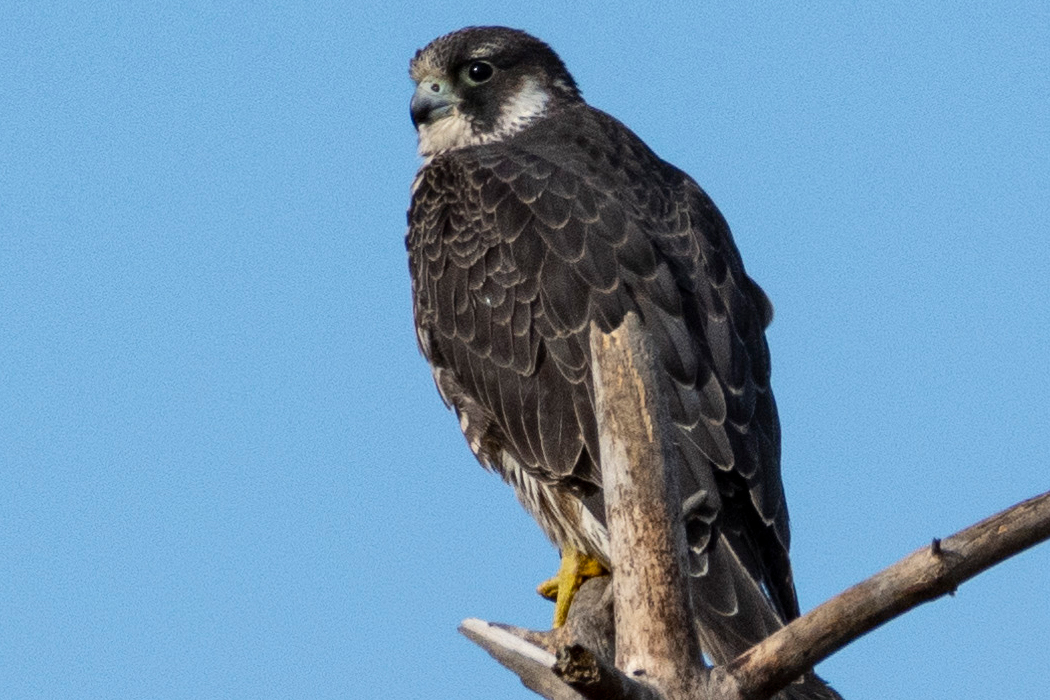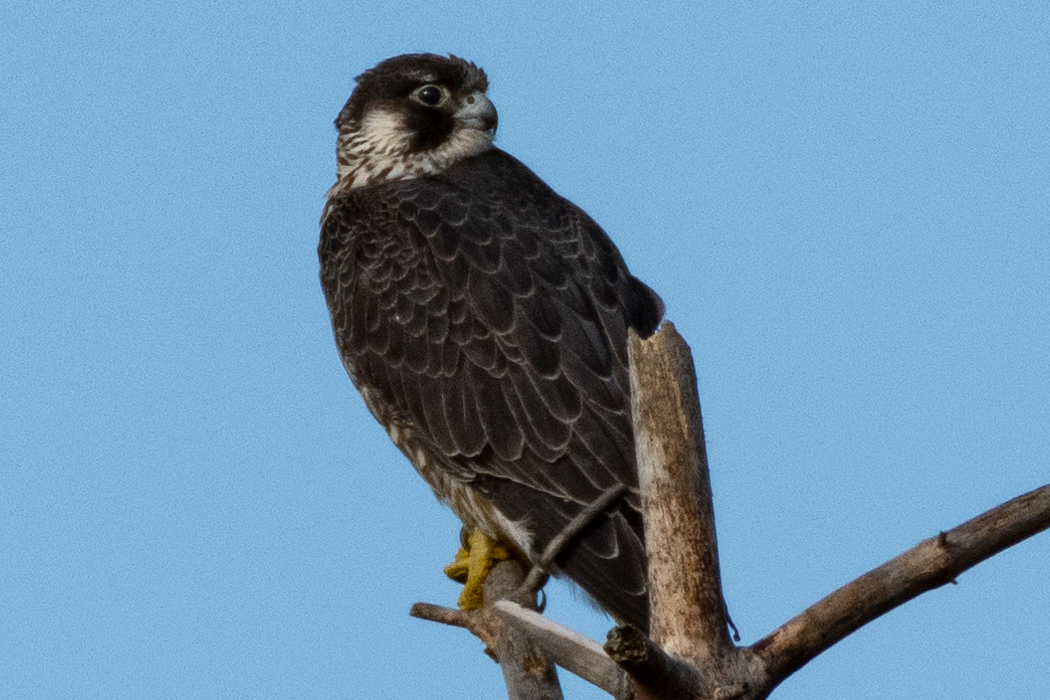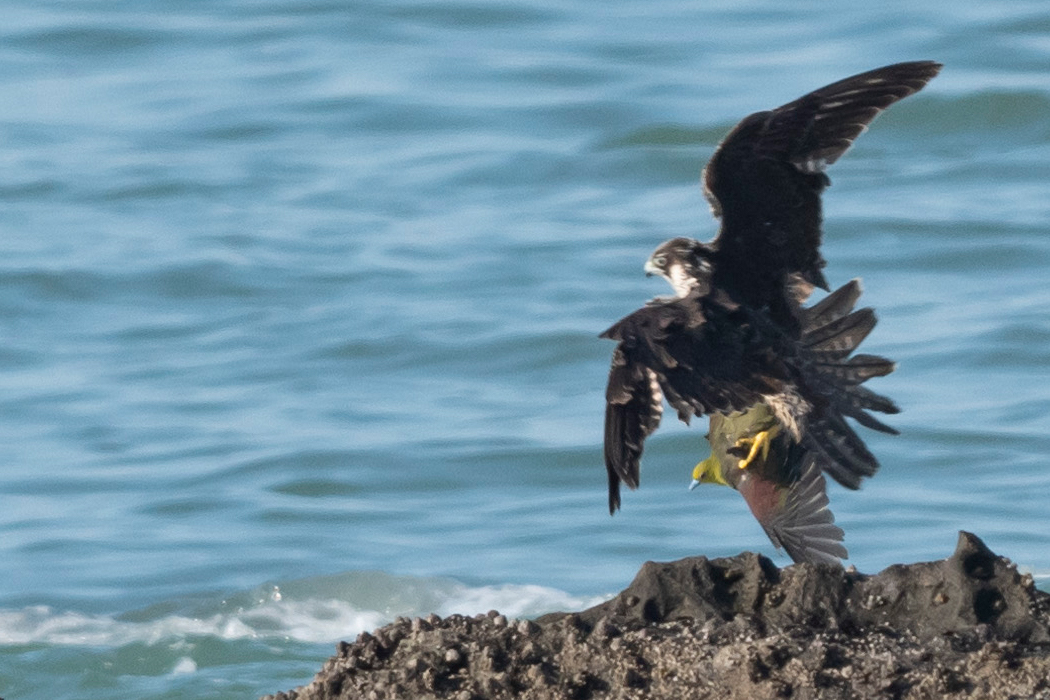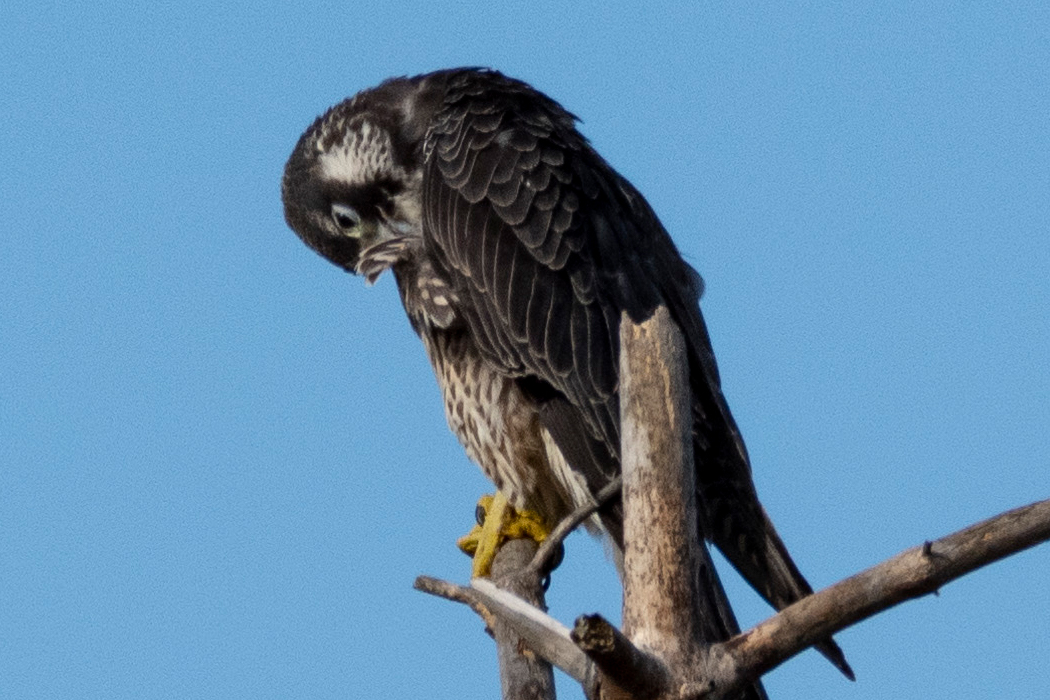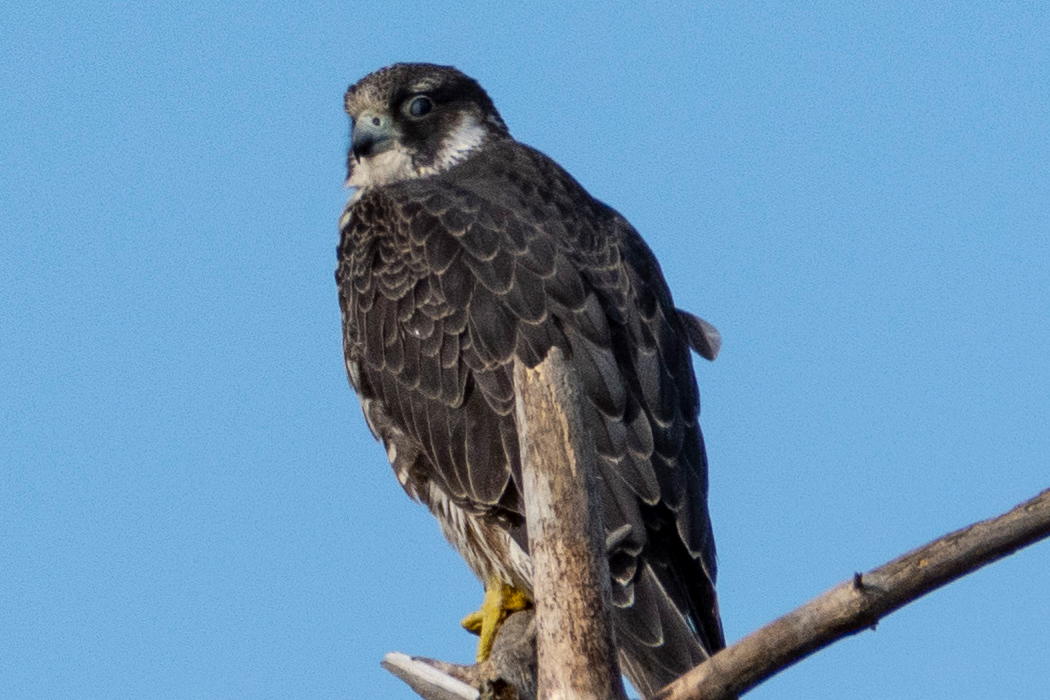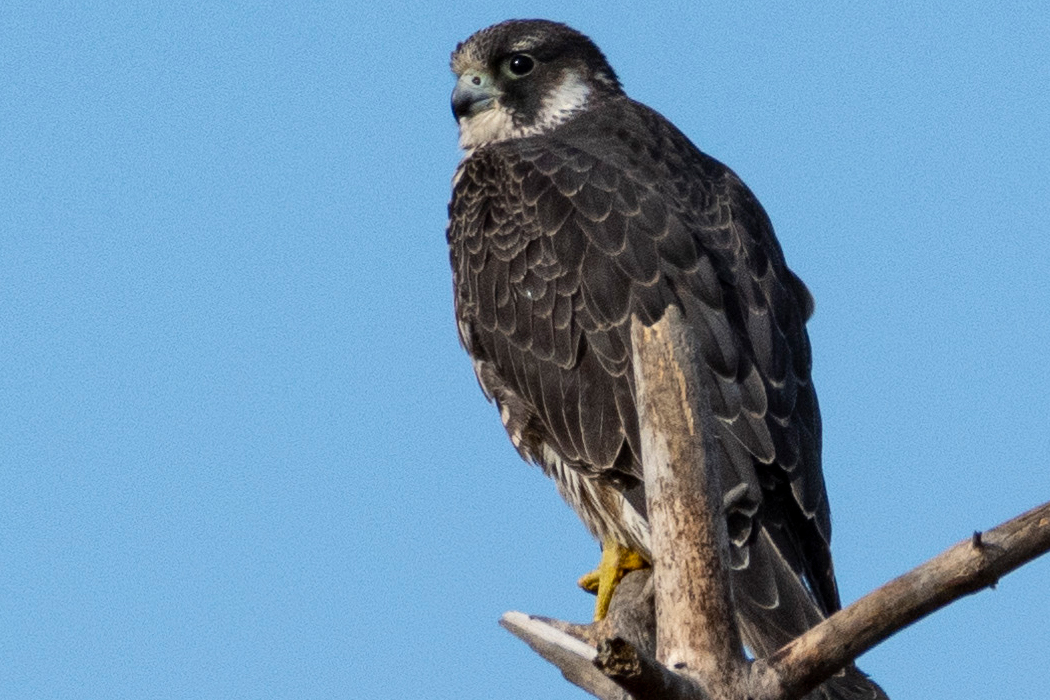
Peregrine Falcon
Swoop to catch prey.
| Scientific name | Falco peregrinus |
| English name | Peregrine Falcon |
| Japanese name | 隼 |
| Classification | Aves |
| Classification details | Falconiformes Falconidae |
| Full length | 38-50cm |
| Distribution | distribution on the earth. |
Characteristics
Dark brown from head to back, white from collar to throat. The legs are yellow and strong. The thorns are dark brown and light brown mottled.
The iris is black to dark brown with a nictitating membrane. The beak is lead-colored, darkening toward the tip, and is thick and short.
Males and females differ in size, with females being larger.
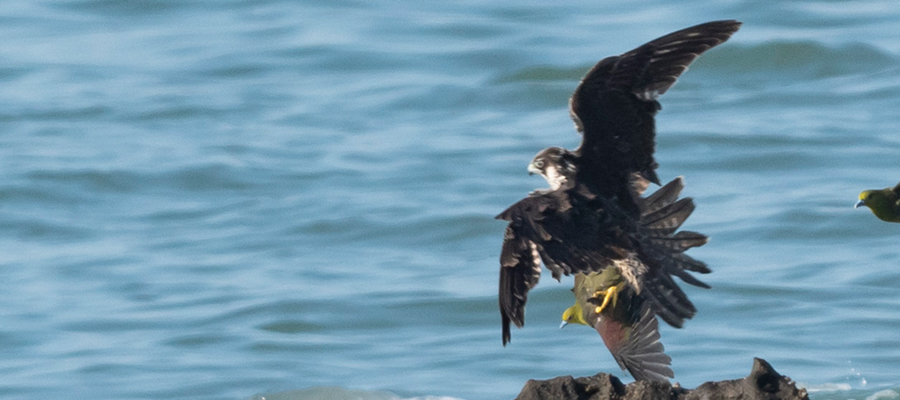
Ecology
Found near coasts and rivers. They catch and eat small birds such as pigeons and sparrows. It swoops down from the air, approaches its prey, kicks it and catches it in an instant. The flight speed is said to reach 100km/h.
Habitat
Yoshida Beach, Miyagi Prefecture
I took a picture of it perched on a treetop along Yoshida Beach. He was preening his feathers, looking quite relaxed. It was like my favorite treetop.
Terugasaki Coast, Kanagawa Prefecture
When I was observing green pigeons on a rocky beach in September, a peregrine falcon rushed in from behind. Aiming at one bird and kicking it in the air, the next moment it caught it and flew far away.
Video
The video of Peregrine Falcon.
It was preening.
Pictures
Introducing a picture of Peregrine Falcon.

Picture book

Asian comma
orange with black spots......ead more.
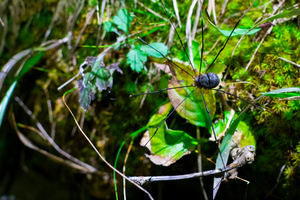
Nelima genufusca
Has wire-like legs and is nicknamed "Uncle Long Legs" in the United States.......ead more.

Eastern Buzzard
Named for the way it glides near the ground......ead more.

Long-tailed Rosefinch
The red color of the male shines in the river bed......ead more.
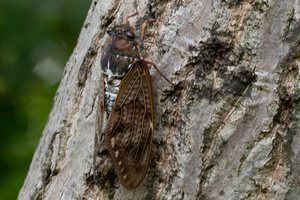
Large Brown Cicada
Makes a "zee" sound.......ead more.
